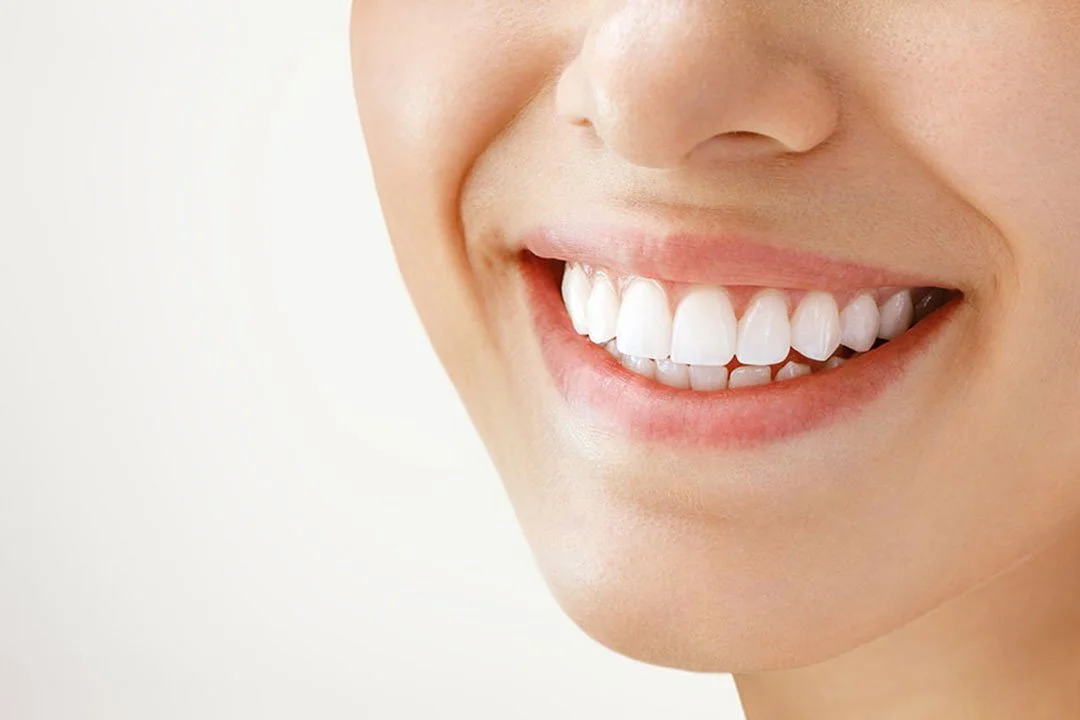Dental Bridge Collingwood

What is a Dental Bridge?
Getting a Dental Bridge in Collingwood is a great option for replacing a missing tooth or several teeth. More specifically, a Dental Bridge is a custom made permanent appliance that ‘bridges’ the gap of a missing tooth, or teeth, and helps to restore function and aesthetics. A Dental Bridge is typically made up of several pieces, including two or more Dental Crowns on either side of the gap (depending on the type of Dental Bridge you are receiving).

Call Us

Book Online
Click to Book

Email Us

Visit Us
1 Huron Street,
Collingwood, L9Y 1C3
A Dental Bridge, and its components, can be made
from a variety of materials, including:
Porcelain Fused to Metal (PFM)
Porcelain Fused to Zirconia (PFZ)
All Porcelain
Gold
Zirconia
Ceramics
Dental Crown
Other Metals & Alloys
These common Dental Bridge materials are generally easy to maintain and will provide a long-term solution to a missing
tooth or teeth if treated correctly. Which Dental Bridge material is right for you? It’s best to discuss your options with
our Dentists at Collingwood Family Dental. Our team offers Free Consultations and Second Opinions for Dental Bridges.
Consultations allow for patients to gain more information about the topic, go over options
with our dentists, and ask any questions you may have about getting a Dental Bridge in Collingwood.
What are the Benefits of a Dental Bridge?
Here are a few main Benefits of a Dental Bridge:
– Restores Function
A Dental Bridge restores the function of your missing tooth and allows your mouth to regain the ability to chew, speak, and function properly.
– Maintains Bite Alignment
When a tooth is missing for a prolonged period of time, your upper and lower teeth’s alignment may become affected. As a result, you’re likely to encounter a sore jaw, misaligned bite, and shifting of teeth. A Dental Bridge helps to restore your bite’s natural alignment and provide support for your jaw and surrounding teeth.
– Avoids Shifting
Your teeth actually help to hold surrounding teeth in place through their root structures and overall support. If a tooth is removed, the surrounding teeth become unsupported and begin to shift. A Dental Bridge helps to support the surrounding teeth and prevent harmful shifting.
– Maintains Facial Structure
Your teeth, jaw bones, and gums all play a critical role in the overall structure of your face and facial profile. When teeth are missing, your facial structure can begin to cave in as a result of unsupported and resorbed bone, gums, and teeth. A Dental Bridge helps to restore and maintain facial structure by keeping your teeth, jaw bone, and gums healthy.
– Keeps Your Smile Healthy
Missing teeth can have a dramatic effect on one’s confidence to smile and interact with others. The ability to feel confident in your smile is very important as it allows you to express emotion, converse with friends, and feel an overall confidence about yourself. A Dental Bridge is a great option to not only restore the function of your smile, but bring its aesthetics back to life.
What Are the Different Types of Dental Bridges?
There are a few main types of Dental Bridges to consider when looking to replace missing teeth. Our dentists at Collingwood Family Dental will be able to provide the best treatment options for your lifestyle and budget.
Here are a few of the most popular types of Dental Bridges:
– Traditional Fixed Bridge
A Traditional Fixed Bridge is the most common type of Dental Bridge and includes two Dental Crowns (one on either side of the missing tooth) that are connected in the middle to form a ‘bridge’ over the space of the missing tooth.
– Maryland Bonded Bridge
A Maryland Bonded Bridge, also known as a ‘Resin-Bonded Bridge’, is often used on anterior (front) teeth. This type of Dental Bridge uses the strength of its two neighbouring teeth to support the Dental Bridge, rather than having to use two Dental Crowns. While this type of Dental Bridge may be less invasive and cheaper, it may not last as long as a Traditional Fixed Bridge as the supports are not as durable.
– Dental Implant Supported Bridge
Dental Implants are used as supports for the Dental Bridge instead of natural teeth or Dental Crowns. Implant Supported Bridges are often the most durable and long lasting option, assuming the Dental Implants are done correctly and successfully.
– Cantilever Bridge
A Cantilever Bridge includes only one support tooth and is used when only one side of the gap contains a tooth or support option. A Cantilever Bridge is the least commonly used option due to its lack of ability to deal with strong forces such as chewing and grinding.
What Causes the Need for a Dental Bridge?
Dental Bridges are designed to replace a missing tooth or multiple teeth. The reason for the missing tooth can range from congenital conditions to an extraction due to a fracture. If you have healthy teeth next to space caused by the missing tooth, you are likely a candidate for a Dental Bridge. Alternatively, a Dental Implant may be an option to create a strong support for a Dental Bridge.
Why not just leave the empty space if it’s not bothering you or isn’t totally visible? Your teeth actually support one another to stay in place and form a strong base for proper function. If one or more of those teeth are missing, your teeth will naturally shift into its place, creating an unbalanced or misaligned bite. This imbalance can lead to many other serious issues such as bite problems, difficulty chewing, and pain from additional stress on your jaw.
Factors that make you a good candidate for a Dental Bridge include:
– Missing one or more teeth
– Good oral hygiene with the absence of periodontal issues
– Healthy adjacent teeth and gums
– Healthy bone levels in the surrounding area
– Good overall health including no severe health conditions, infection, or conflicting medications
There are other options for missing teeth other than a Dental Bridge, which include Dental Implants or a Partial Denture. Both of these options have their pro’s and con’s, but should be considered none-the-less. Our dentists at Collingwood Family Dental will be able to discuss all of your options for missing teeth during your visit. Free Consultations and Second Opinions are always available to discuss treatment and financial options.
How are Dental Bridges Done?
Dental Bridges are often completed over the course of two appointments. The first appointment involves preparing the adjacent teeth next to the empty space of the missing tooth and taking impressions for the dental lab to make your Dental Bridge. The second appointment includes cementing the Dental Bridge and making any necessary adjustments to its fit and positioning.
Here is a further breakdown of how the Dental Bridge process works.
– First Visit for a Dental Bridge
Your first appointment for your Dental Bridge will typically take between 45 minutes and 2 hours of time. The type of Dental Bridge you are receiving will have a significant impact on the overall time of this appointment. For instance, a Cantilever Dental Bridge requires only one tooth to be prepared, while a Traditional Dental Bridge requires two teeth to be prepared and therefore will take double the time to complete.
Additional time and appointments may be needed for this step depending on the complexity of the case. For example, if your support teeth require post and core build ups, it may take longer to prepare each tooth. Either way, we want to allow for the best possible preparation to maximize the life expectancy of your new Dental Bridge.
Once the adjacent teeth or Dental Implant have been prepared, your dentist or assistant will either digitally scan your mouth or take impressions. Both of these methods are extremely accurate and provide the dental lab with the information they need to make a perfect Dental Bridge. A temporary Dental Bridge will be placed on the prepared teeth until your second appointment where you will receive your new permanent Dental Bridge.
– Second Visit for a Dental Bridge
Your second appointment for your Dental Bridge will typically take between 45 and 90 minutes. During this appointment, we will have already received your new permanent Dental Bridge back from the dental lab and will be ready to match it up to your prepared teeth. Our Collingwood dentist will make sure the Dental Bridge is exactly what they were expecting before cementing it in place over your prepared teeth and space from your missing tooth. Our dentists at Collingwood Family Dental will make sure to confirm all shades, margins, and fit before finalizing and cementing your new permanent Dental Bridge. Again, this appointment may take longer, depending on the complexity of the case.
Overall, a Dental Bridge brings many benefits to a healthy smile by replacing a missing tooth and creating a healthy foundation for the rest of your teeth. Dental Bridges are a very common procedure that is regularly performed at Collingwood Family Dental. If you’re interested in receiving a Dental Bridge, or are unsure if its the right treatment for you, feel free to schedule a Free Consultation or Second Opinion with our dentists at Collingwood Family Dental. Our team would be happy to put a treatment plan together for you, go over your options, and answer any questions you may have about the process of getting a Dental Bridge in Collingwood.
How Much Does a Dental Bridge Cost?
The cost of a Dental Bridge will depend on the complexity of the case, the type of Dental Bridge required, and the oral health condition of the patient. For instance, a Traditional Dental Bridge will be more affordable than a Dental Implant Supported Bridge as the latter requires additional work on the abutment portion of the Dental Bridge process.
Here are a few factors that have a significant impact on the cost of a Dental Bridge:
– Bridge Type (Cantilever Bridge, Maryland Bridge, Traditional Bridge, Implant Supported Bridge)
– The number of teeth that need to be gapped (the # of spaces)
– Bridge Material (Zirconia, PFM, Gold, etc)
– Amount of Pre-Appointment work needed (Dental Implant, Bone Grafting, etc)
– Experience of the Dentist (Prosthodontist Specialist will be more expensive than a General Dentist)
– Number of X-Rays taken during pretreatment examination and consultation
– Complexity of the case itself
– Other existing health and oral conditions
The cost of a Dental Bridge is extremely hard to estimate as there are so many factors that can increase the cost of treatment as listed above. However, a single unit Dental Bridge typically ranges from $1,500 to $5,000 (inclusive of all Dental Lab fees). This does not include a Dental Implant, Examination, Consultation, X-Rays, or any additional dental services. At Collingwood Family Dental, our fees are based on the current year’s Ontario Dental Fee Guide, provided by the Ontario Dental Association.
To get a complete quote or estimate, please schedule a Free Consultation with our team at Collingwood Family Dental. We’ll be able to tell you more about your specific case, provide recommendations, answer any questions you may have, and go over your out-of-pocket costs and financial options. We also provide financing options for our patients to help spread the costs out month-to-month.
Does Getting a Dental Bridge Hurt?
Going through a Dental Bridge treatment should not be a painful experience. You may experience mild discomfort when receiving the local anesthetic, but the treatment itself should be relatively easy. The local anesthetic should numb the entire working area, allowing your dentist to work freely. The final function and aesthetic of your new Dental Bridge will be well worth any mild discomfort experienced during the treatment!
For those with dental fears and anxieties, our team at Collingwood Family Dental may recommend sedation options such as Nitrous Oxide, also known as ‘Laughing Gas’. Nitrous Oxide is a mild form of sedation that helps you to relax right from the beginning of your appointment. Make sure to notify our team at Collingwood Family Dental if you’d be interested in sedation options.
Are Dental Bridges Covered by Insurance?
Dental Bridges may be covered by your Dental Insurance Plans under ‘Major Restorative’ work. Major Restorative dental work is often covered between 50% and 100%, depending on the Dental Insurance Plan. Our team would be more than happy to explain your Dental Insurance Plan and see if Dental Bridges are covered. We can also submit a pre-determination to see exactly what is covered for Dental Bridges under your Dental Insurance Plan.
At Collingwood Family Dental, we offer Direct Insurance Billing. This means you are only required to pay any required co-payments, deductibles, or other plan fees at the time of service. We will go through the effort to submit your claim and collect all payments on your behalf. We offer Direct Billing as a convenient service to our patients, as it allows them to skip the hassles of dealing with Dental Insurance Providers.
Searching for a Dentist Near You for a Dental Bridge?
Trying to find a dentist near you for a Dental Bridge isn’t always easy. The best dentist for a Dental Bridge is not only going to be able to perform the treatment with precision and accuracy, but also understand your current oral health status and future goals for your smile. You should be able to trust your dentist to have your best interest in mind when having a Dental Bridge done in your area.
Our dentists at Collingwood Family Dental offer Dental Bridge treatment with a variety of materials and treatment options. If you’re in the Collingwood or surrounding area, we would love to have you in for a Free Consultation to go over your options and answer any questions you may have about Dental Bridges in Collingwood. If you’re ready for treatment, our dentists would be more than happy to review the case and get started on your Dental Bridge!
How to Schedule a Dental Bridge at Collingwood Family Dental
To schedule an appointment or examination for a Dental Bridge, feel free to call, email, complete an online form, or schedule online using our Online Booking platform. We would be happy to help find a time that works for your first appointment! We are always accepting new families, walk-ins, and patients of all ages and are located on the Collingwood harbour at 1 Huron St, Collingwood with lots of Free Parking.
At Collingwood Family Dental, our services for Dental Bridges are available for anyone in the areas of Collingwood, Wasaga Beach, Thornbury, The Blue Mountains, Nottawa, Clarksburg, Springwater, New Lowell, Creemore, Stayner, Clearview, and the surrounding areas! We offer Direct Insurance Billing, accept all major forms of insurance, provide Emergency Dentistry, and welcome family bookings!
Our Services
Collingwood Family Dental
Follow Us on Social Media!
Get in Touch
How Can You Schedule an Appointment?
Here are the best ways to get in touch with our team for your appointment!

Call Us

Book Online

Email Us








